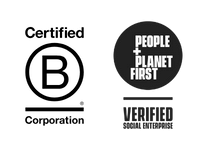Modern Slavery Statement
Introduction
Preventing modern slavery and human trafficking within our business and supply chain is a paramount responsibility that we take extremely seriously. We are dedicated to implementing and developing best business practices to combat these issues while striving to achieve our commercial goals in a reputable and responsible manner. This statement outlines the steps we have taken and intend to take in 2024/2025 to identify, understand, and minimise potential risks related to modern slavery and human trafficking within our business structure and supply chain.
Our Structure and Business
Madlug, referred to as the Company, employs individuals directly and maintains relationships with various organisations in its supply chain and customer base. Operating as a social enterprise luggage brand, we are on a mission to provide dignity to children in care. Our products are sold directly to consumers, corporates, and through UK retail partners.
Our Supply Chains
Our suppliers, UK-based companies, have supply chains that include a factory base covering raw materials and manufacturing, logistics suppliers, and 'not for resale' goods and service providers. These cover fixtures and fittings used in our offices, IT equipment, utilities, waste services, marketing, advertising, accounting, legal, professional services, recruitment, and training. Our suppliers, varying in size and expertise, rely on their own supply chains to provide goods or services to us. The factories our UK-based suppliers work with are mainly located in China, India, Pakistan, and more recently, Vietnam.
We request our suppliers to adhere to our Supplier Code of Conduct and Ethics. Additionally, we routinely review and audit our suppliers, with an annual visit to our primary bag supplier to verify compliance.
Our Policies and Due Diligence Processes on Slavery and Human Trafficking
We are committed to ethical and transparent business dealings, ensuring transparency in our own business and addressing modern slavery throughout our supply chains, in line with the Modern Slavery Act 2015. Recognising the higher risk in the countries where our suppliers operate, we have implemented effective systems and controls to ensure modern slavery is not occurring.
We expect our standards to be upheld by all contractors, suppliers, and business partners. Our recruitment process includes specific prohibitions against forced or trafficked labour, and we conduct thorough 'Right to Work' checks for all employees. An open-door policy encourages employees to report concerns related to modern slavery or human trafficking.
To prevent modern slavery, we continuously review our systems and procedures to:
- Identify and assess potential risk areas in our supply chains.
- Mitigate the risk of slavery and human trafficking in our supply chains.
- Monitor potential risk areas.
- Protect whistleblowers through our Whistleblowing Policy.
Training
Training on this policy and the risks our business faces from modern slavery is integrated into staff coaching and development as necessary.
Our Effectiveness in Combating Slavery and Human Trafficking
We will monitor the effectiveness of our practices to ensure that modern slavery and human trafficking are not taking place in our business or supply chains.
Dave Linton
Founder / CEO













